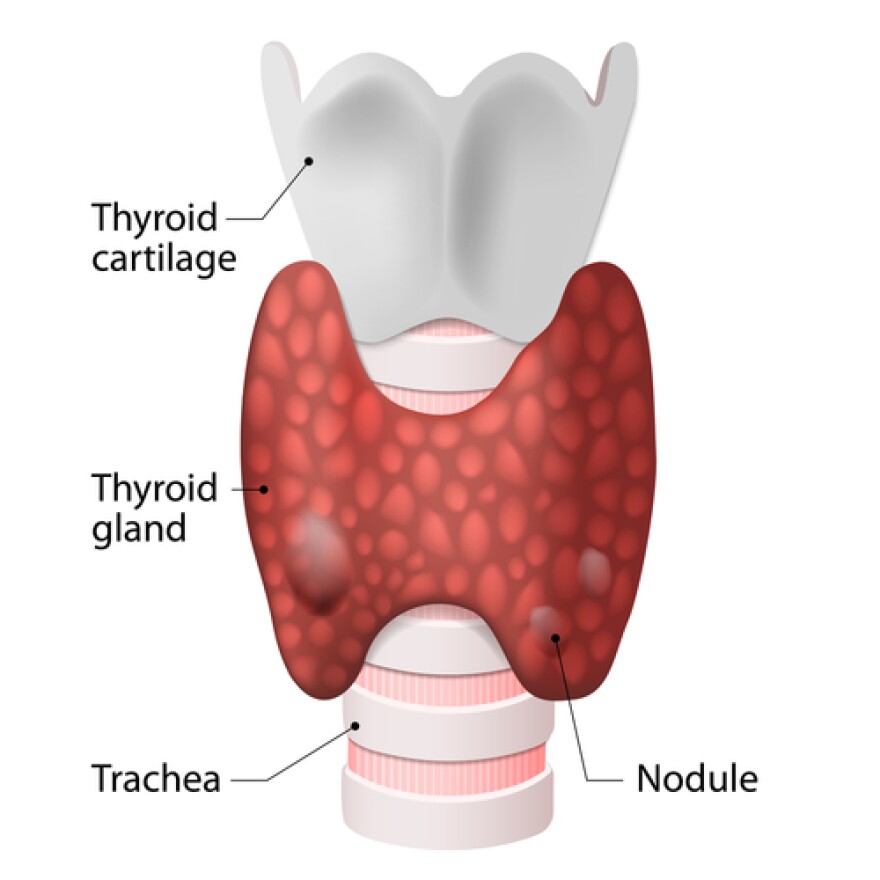An estimated 20 million Americans have some form of thyroid disease, which is very treatable, according to the American Thyroid Association. But more than half the people with thyroid disease don’t know they have it.
Dr. Alex Tessnow is an endocrinologist at Parkland Hospital System and an assistant professor of internal medicine at UT Southwestern Medical Center.
Interview Highlights:

Purpose of the thyroid: “Basically, it’s a gland, right on the side of your trachea. This is way down kind of low, just above your chest and the bottom part of your neck. Its main function is to make thyroid hormone. Thyroid hormone is used virtually by every tissue in your body for one reason or another. Its main function is to tell your cells when to turn on and when to turn off."
It often poses problems for women: It’s more common for women to have thyroid dysfunction than in men. It’s also more common as we age. It’s not really clear why. But it may have something to do with estrogen or it may have something with testosterone being protected — we don’t know.
Thyroid problems can occur without your knowing it: “For instance, with low thyroid dysfunction or hyporthyroidism, when the thyroid isn’t making enough thyroid hormone, very common symptoms would be feeling fatigued, gaining weight, constipation, feeling cold. And so that’s one of the challenges because people will often chalk it up to something else and say “Oh, I’m not tired because I’m not sleeping well.”
And hyperthyroidism? “That’s where your thyroid is overproducing. It has a lot of the opposite effects. They can still feel tired, but they might feel jittery, anxious. They might have frequent bowel movements. They might lose weight or losing hair. Again, things they might attribute to other things.
Treatment: “If we’re talking low thyroid or hypothyroidism, the only treatment that is proven and effective is thyroid hormone replacement. Prescription medication is the only way to treat that. The most common cause of hyperthyroidism or over production of thyroid hormone in this country is Grave’s Disease. There’s really three different ways we can treat that: medication which lower thyroid levels, a dose of radioactive iodine which kills the gland in a way, and then surgery is less commonly used, but is sometimes used for control of hyperthyroidism as well.”





